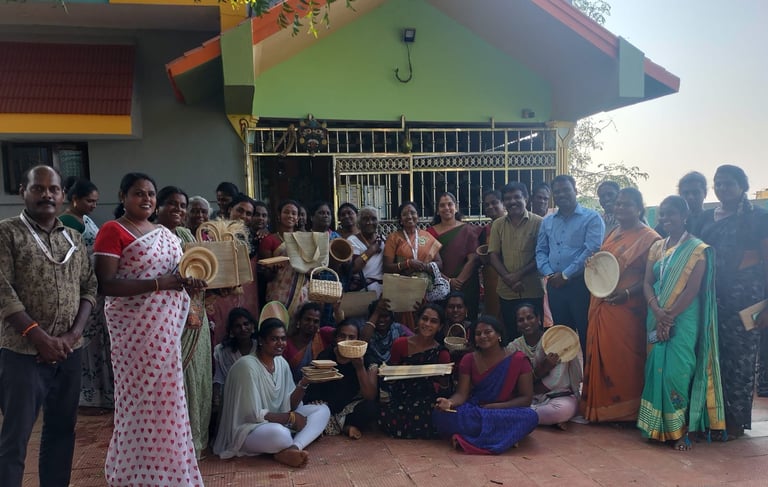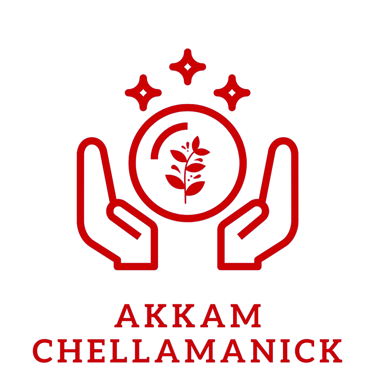Banana Fibre products - Threads of change
A Journey Rooted in Research and Reality
At Akkam ChellaManick OPC Private Limited, our mission to build a sustainable livelihood enterprise began with a question: How can we create eco-friendly, dignified employment for marginalized communities in Tamil Nadu—especially women and transgender persons—using local resources?
Over the past two years, we have explored this question deeply, investing time and energy into understanding the true potential of banana fiber, especially in the context of Tiruchirappalli, a major banana-growing region in India. Here's what we discovered and why we believe this is the right time—and place—to act.
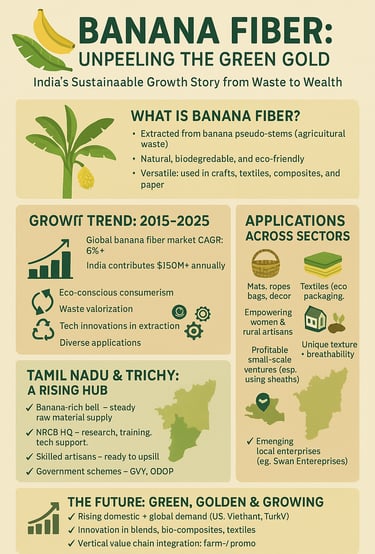

Field Visits and Market Study
We didn't start with assumptions. We started with people and places.
• Visited SVS & Co Fiber Garden, where we observed end-to-end banana fiber operations—from procurement of pseudo-stems to production, product finishing, and market dispatch. We studied how production flow was managed, what machinery was used, and where market bottlenecks occurred.
• Conducted one-on-one interviews with banana fiber entrepreneurs across Tamil Nadu, from handicraft makers in Madurai to composite manufacturers in Coimbatore.
• Engaged with fiber traders and bulk buyers to understand pricing dynamics, logistics challenges, and seasonal fluctuations in supply.
• Participated in training programs on handmade banana fiber crafts hosted by Eco Green Unit, Coimbatore, gaining first-hand skills in fiber extraction, basket weaving, and sheet-making.
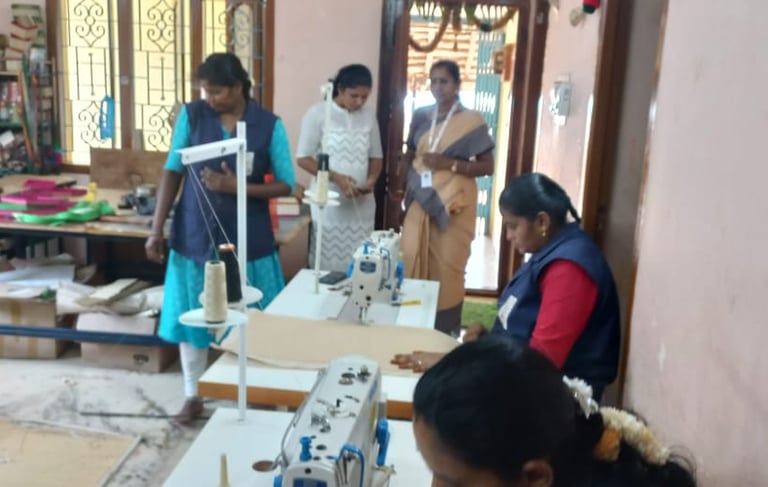

Learning from the Ecosystem
Our team closely studied industry trends, supply chain challenges, and government policies through formal research and consultations with experts:
• Tamil Nadu is a banana powerhouse, with Trichy alone contributing hundreds of acres of cultivation. But 90% of the pseudo-stem biomass is wasted, polluting fields and choking rivers. This is a massive untapped opportunity.
• The ICAR-National Research Centre for Banana (NRCB) in Trichy provides accessible, eco-friendly fiber extraction techniques. We explored partnerships with NRCB to bring this technology to rural SHGs and women-led groups.
• Government schemes like ODOP, PMEGP, and Gramodyog Vikas Yojana offer financial and technical support to banana fiber enterprises—yet few transgender or women-led units have been able to leverage these. We aim to bridge this gap.
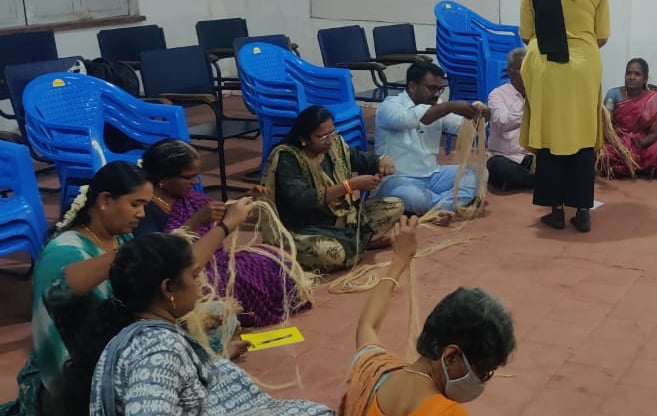

A Vision Grounded in Work
We believe banana fiber isn't just a raw material—it’s a catalyst for change. Our background research has helped us:
• Understand unit economics and profitability, especially for handmade craft-based models with low capital costs
• Identify the right machinery and processing methods for small-to-medium-scale production
• Build a community-first model that trains and employs local women and transgender persons from day one
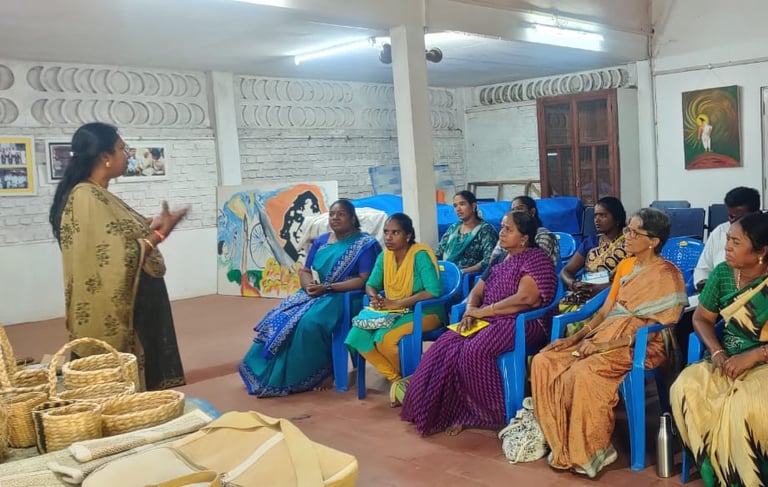

SWOT Analysis: Our Strategic Lens
Based on research and lived experience, here is a snapshot of what makes banana fiber a viable business in Tiruchirappalli:
At Akkam, we have undertaken a careful and community-informed analysis of the viability of launching a banana fiber-based utility products unit in Tiruchirappalli. This SWOT analysis, grounded in field research, R&D, and extensive stakeholder interaction, guides our strategy for growth, impact, and sustainability.
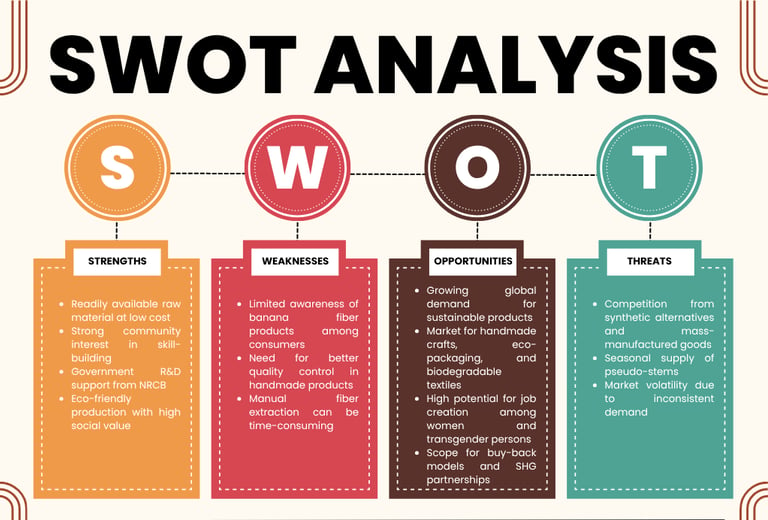

What Comes Next
Akkam is now ready to move from research to implementation. We are setting up our first handmade banana fiber utility products unit in Tiruchirappalli, focusing on:
• Training 30+ individuals from marginalized backgrounds
• Creating craft-based products such as baskets, bags, mats, folders, and packaging
• Building market linkages with conscious retailers, export agents, and online platforms
• Offering buy-back assurance to ensure consistent income for producers
This is not just a business—it’s a step towards dignity, sustainability, and circular economy rooted in the soil of Tamil Nadu.
